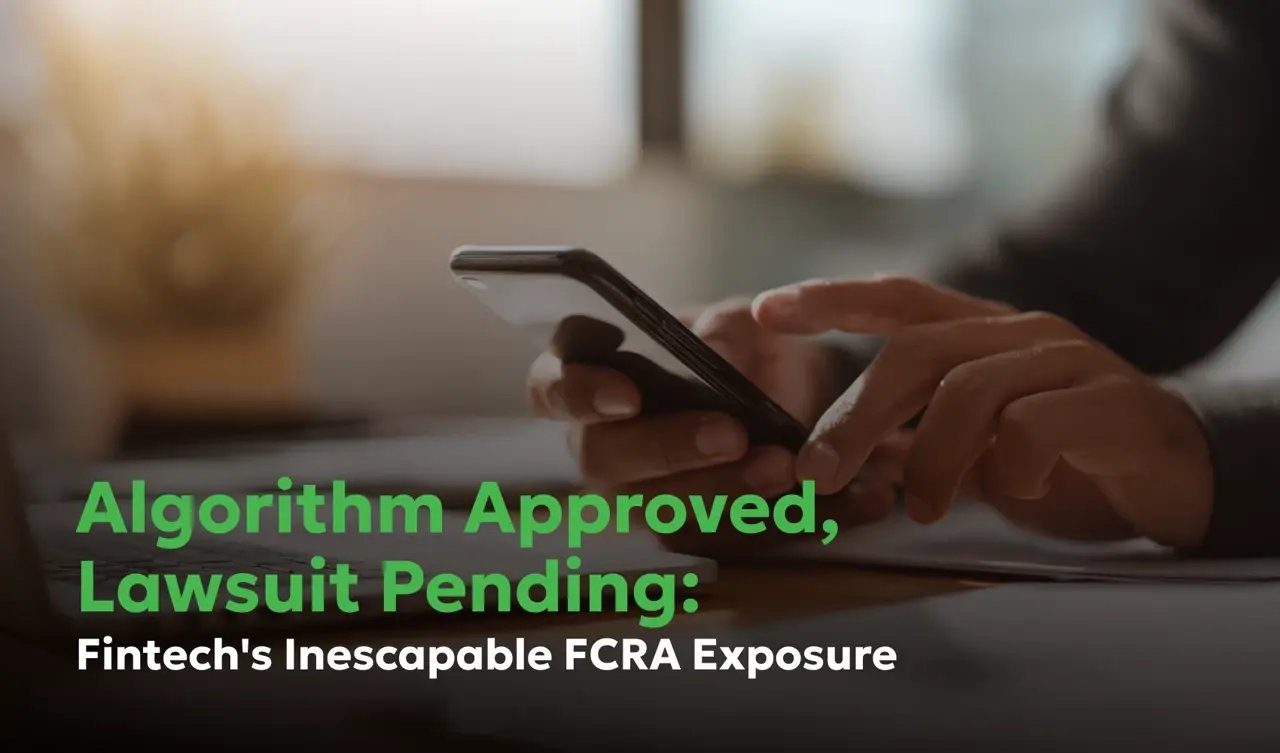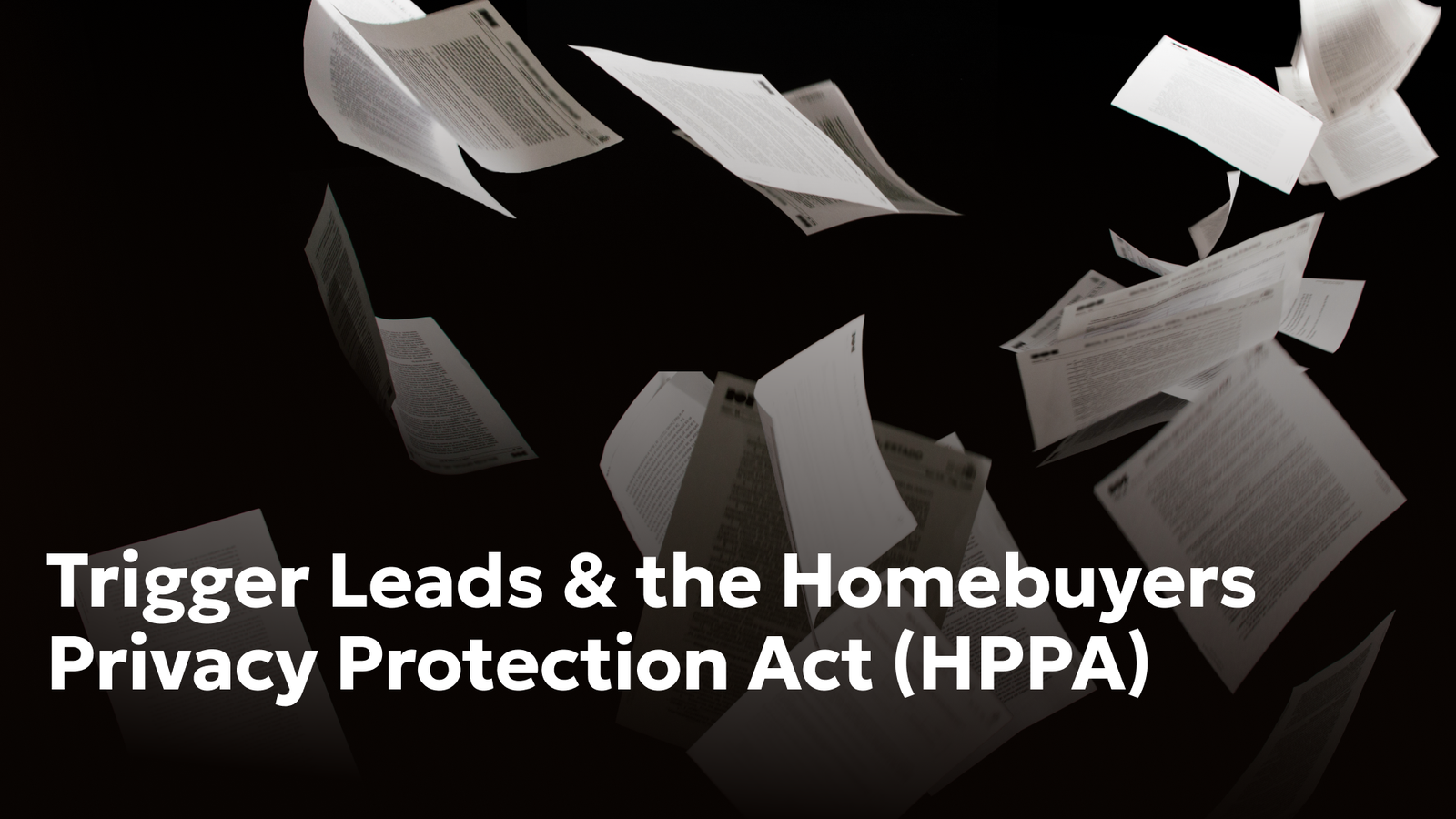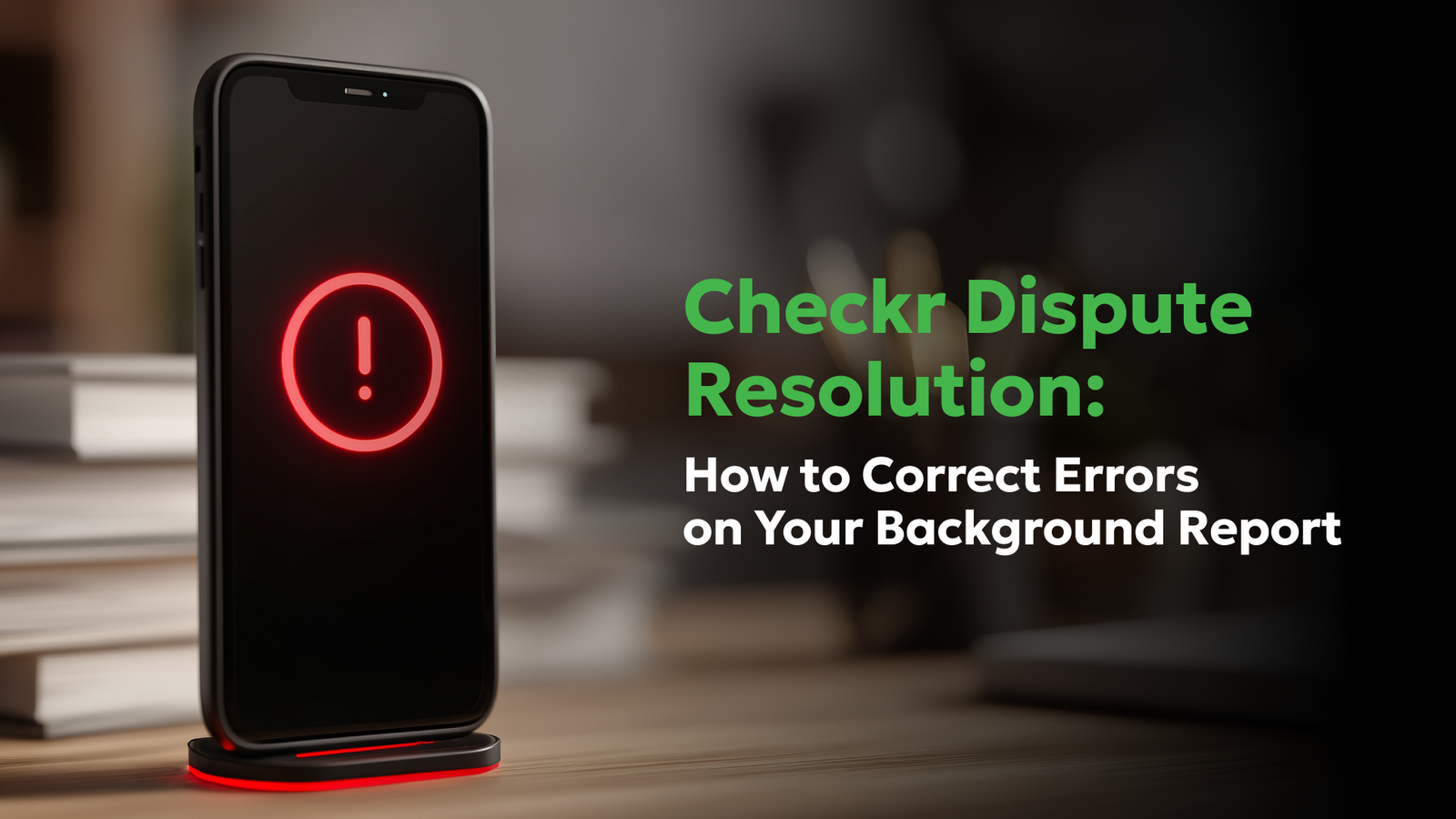Everything About Levels of Background Checks
- Blog
- All about FCRA
Everything About Levels of Background Checks

Explore the 5 Levels of Background Checks and Everything You Should Know Before Agreeing to One!
Background checks come in different levels. Discover the 5 levels of background checks, common disqualifying offenses, industry-specific needs, and which screening an employer may request for you!
In today’s world, background checks are critical for employers, landlords, and many other professionals who need to ensure they are making informed decisions. From hiring new employees to approving tenants for a rental property, conducting a thorough background check provides peace of mind and helps reduce risks. Different levels of background checks offer varying degrees of scrutiny, ranging from basic identification verification to extensive criminal record reviews. Understanding these levels and their implications is essential when they are used to evaluate applicants for jobs or housing.
It’s important to understand how the levels of background checks work and what they mean for your future opportunities, so you can face the process with assurance and clear understanding. Continue reading to discover how these checks are conducted and what you can do to approach them successfully.
Levels of Background Checks
Background checks are categorized into different levels based on the depth of information they provide. In other words, background check levels range from 1 to 5, with 1 being the least stringent check and 5 being the most robust and in-depth search.
The different background check levels determine what kind of data will be searched, including criminal history, employment verification, educational background, and more.
How Many Levels of Background Checks Are There?
It’s important that you keep in mind that different industries, companies, background screening agencies, states, and professionals may consider there to be different levels of screenings. Some industries only acknowledge 4 background check levels, but the majority of research points toward there being 5 levels of background screenings.
Each background check level offers more detailed reports. Errors can occur at any level, so it’s important to address them quickly.
Background checks typically range from Level 1 to Level 5. Each level adds another layer of investigation, with higher levels focusing on more detailed reports. Whether it’s a hiring manager, landlord, or individual trying to vet an applicant’s past, understanding the different levels can help determine which check is most appropriate. Irrespective of the background check level, errors occur at all levels and should be met with immediate resistance by contacting Consumer Attorneys right away!
If you’ve been wondering, “What is a level 1 background check?” or "What Does Level 1 mean on a background check?”, keep reading!
A Level 1 background check is often the most basic form of screening. It generally includes verification of identity and a simple criminal record search based on a person’s name and social security number. This type of check is common for entry-level positions or volunteer roles where the risk level is relatively low.
Level 1 Background Check
A Level 1 background check primarily focuses on county-level records and involves searching databases for recent arrests or convictions. It’s a strong protective measure, but it may not provide as much depth as other background checks, which can investigate more significant details, like criminal offenses at the state or national level.
Level 1 Background Check Disqualifying Offenses
Disqualifying offenses in a Level 1 check can include misdemeanors or more severe charges that are found in local criminal records. Some common disqualifying offenses include:
- Misdemeanors – Less severe crimes such as petty theft, disorderly conduct, or simple assault.
- Local Criminal Charges – Offenses found within the local county or state jurisdiction, including DUI, vandalism, or minor drug-related offenses.
- Probation Violations – Any failure to comply with probation conditions within the local area.
- Pending Charges – Active, unresolved cases that may indicate a potential risk.
While Level 1 checks are useful for basic screening, they may not capture out-of-state offenses, which can be a limitation for employers seeking a more thorough review.
Level 2 Background Check
A level 2 background check is a screening that goes deeper than a level 1 and involves fingerprint-based searches, usually conducted at both the state and national levels. These checks are often required for positions of trust or responsibility, such as jobs involving children, the elderly, or sensitive personal data.
Typically, Level 2 background checks will include checks of national databases like the FBI’s criminal database, which can capture a broader range of offenses that a Level 1 check might miss.
Level 3 Background Check
A Level 3 background check is even more extensive, delving into various aspects of a person’s past beyond basic criminal records. It includes employment verification, education verification, and sometimes even credit history. For example, if you’ve applied for a financial position, it’s likely your prospective employer will order a Level 3 check to ensure that your credit history is solid.
Level 3 Background Check Disqualifying Offenses
A Level 3 background check looks at serious felonies and misdemeanors but goes beyond that by checking for offenses such as identity theft, fraud, or other white-collar crimes. Here are some common disqualifying offenses:
- Felonies and Misdemeanors – Serious crimes such as assault, theft, or drug-related offenses.
- Identity Theft – Any involvement in stealing or misusing personal information.
- Fraud or Embezzlement – Engaging in deceitful activities, especially in financial or corporate settings.
- Discrepancies in Employment History – Any inconsistencies between the provided work history and the findings from the background check.
- Educational Fraud – Falsifying educational credentials or degrees.
These disqualifying offenses can significantly impact a candidate’s employment prospects, especially for positions that require employees to display exceptional amounts of trustworthiness and responsibility.
Level 4 Background Check
A Level 4 background check is generally reserved for executive-level positions or roles that require a higher degree of trust and accountability. These checks may include all the screenings from previous levels but go deeper into financial history, international criminal records, and perhaps a more detailed look into social media or public records.
Executive-level roles require more thorough background checks, like Level 4, which includes international criminal records and financial history for higher accountability.
This type of screening is essential for companies that are hiring for sensitive roles that involve financial control, access to proprietary information, or even government contracts.
Level 5 Background Check
A Level 5 background check is the most comprehensive of all background screening processes. It is typically reserved for high-security positions, government jobs, or roles where any risk associated with the individual’s background could be disastrous.
What is a Level 5 Background Check?
Level 5 checks will involve everything from Levels 1 to 4, with the addition of even more extensive checks such as in-depth personal and professional references, international criminal records, and a close review of the person’s connections and affiliations. This level of background screening ensures that the individual is thoroughly vetted from every angle. Level 5 checks are usually reserved for positions requiring national security and those for government employees.
Recap of Levels of Background Checks
| Level | Type of Screening | Common Uses |
|---|---|---|
| Level 1 | Basic criminal records, identity verification | Entry-level jobs, volunteers |
| Level 2 | Fingerprint-based, state, and national checks | Jobs with vulnerable populations (children, elderly) |
| Level 3 | Criminal, employment, education, and credit checks | Mid-level positions, financial jobs |
| Level 4 | Comprehensive screening, including international checks | Executive roles, government jobs |
| Level 5 | Extensive background, personal, and professional verification | High-security, high-responsibility roles |
Industry-Specific Needs and Requirements
Certain industries, such as healthcare, education, and finance, require specific background checks to comply with legal standards or industry best practices. For instance, schools often require Level 2 background checks to ensure that employees and volunteers are safe to work around children. Similarly, financial institutions may lean towards Level 3 or 4 checks to prevent fraud and ensure fiscal responsibility.
Which Background Screening Is Best for You?
The best background check for your situation will depend on the industry, role, and risk involved in the positions you’ve applied for. If you’re applying for an entry-level position, a Level 1 or Level 2 check may suffice. However, if you’re considering working in a role involving high levels of financial responsibility or sensitive data, your employer may request that you consent to a Level 4 or Level 5 check.
Be sure to speak with your employer before agreeing to a background check if you have questions or concerns.
Compliance
Conducting a background check requires compliance with legal guidelines, such as the Fair Credit Reporting Act (FCRA). Here are some key compliance requirements for employers:
- Written Consent: Employers must obtain written permission from the candidate before conducting a background check.
- Disclosure of Intent: Before conducting the check, candidates must be informed in writing that a background check will be run.
- Adverse Action Notice: If a decision (e.g., not offering a job, termination, or denying housing) is based on the results of the background screening, the person who requested the background check must notify the applicant of the adverse action.
- Copy of the Report: The individual must be provided with a copy of the background check report if it led to an adverse action.
- Right to Dispute: Candidates or individuals have the right to contest (dispute) erroneous or incomplete information found in the background check. We recommend doing this via certified mail and not online to preserve your rights!
By adhering to these guidelines, employers are more likely to be compliant with the law and protect both their business and potential candidates.
Most Common Background Checks
Many employers and landlords rely on the same background check procedures for consistency and simplicity. These checks typically involve verification of identity, a criminal record search, and employment history.
Errors in background checks can lead to missed opportunities. It's crucial to dispute them quickly to ensure fairness in hiring or rental decisions.
Did You Find Errors on a Background Check?
Errors can occur during a background check due to outdated or incorrect information being reported. If you find an error, it’s essential to act quickly and dispute it with the company or agency that conducted the screening. Correcting these mistakes is important for ensuring fairness in hiring or rental processes. You should file all disputes via certified mail to preserve rights that you will need later in the dispute and litigation process.
Most Common Errors
| Type of Error | Description |
| Inaccurate Criminal Records | Wrongly Attributed Criminal Records |
| Employment Discrepancies | Incorrect Employment Dates or Positions |
| Educational Verification Errors | Incorrect Degree or Institution Information |
| Inaccurate Information | Old and outdated information - no longer relevant |
Need Help! Reach Out – Today!
If you’ve encountered issues with a background check, whether it’s disputing an error or getting a copy of your screening report, don’t hesitate to seek assistance. Legal professionals can assist you through the dispute and litigation process.
Understanding the world of background checks can be complex, but the right support can make it easier. Feel free to reach out to a background check attorney at our firm today for questions and support.
Frequently Asked Questions
The hardest background check is typically a Level 5 background check, which involves the most thorough and comprehensive vetting. It usually applies to positions that require high-security clearance, such as government jobs, military roles, or positions in finance. This level of scrutiny may include checks of criminal records, education, employment history, financial background, and credit reports and can even include interviews with associates and past employers. Additionally, fingerprinting and drug screening are often part of the process. Due to the depth of investigation, these checks ensure that individuals in critical roles maintain the highest standards of integrity and security.
Background checks that involve international records or extensive criminal history checks often take the longest. Verifying education or employment from foreign institutions, collecting court records from various jurisdictions, and conducting federal background checks can significantly extend the time needed to complete a check. For positions requiring security clearance, such as government roles, checks can take months, as they involve thorough reviews of personal, professional, and financial history. Additionally, if an employer requests fingerprinting or in-depth criminal background searches across multiple states or countries, this can also add time to the process. Delays in court responses or incomplete documentation can further extend the wait.
Not necessarily. A background check taking a long time can happen for various reasons, many of which aren’t negative. For example, if your background involves multiple jurisdictions, foreign education or employment, or government roles, this could extend the process. Other delays could be due to administrative slowdowns, such as backlogs at courthouses or data-verification companies. However, if you’re concerned, it’s perfectly acceptable to check in with your potential employer or the background screening company to understand the status. They may provide insights into what’s causing the delay, but in most cases, a longer background check does not indicate problems. For additional concerns, contact Consumer Attorneys for a review of your case.


Daniel Cohen is the Founder of Consumer Attorneys. Daniel manages the firm’s branding, marketing, client intake and business development efforts. Since 2017, he is a member of the National Association of Consumer Advocates and the National Consumer Law Center. Mr. Cohen is a nationally-recognized practitioner of consumer protection law. He has a we... Read more
Related Articles




R
ONGS™You pay nothing. The law makes them pay.






